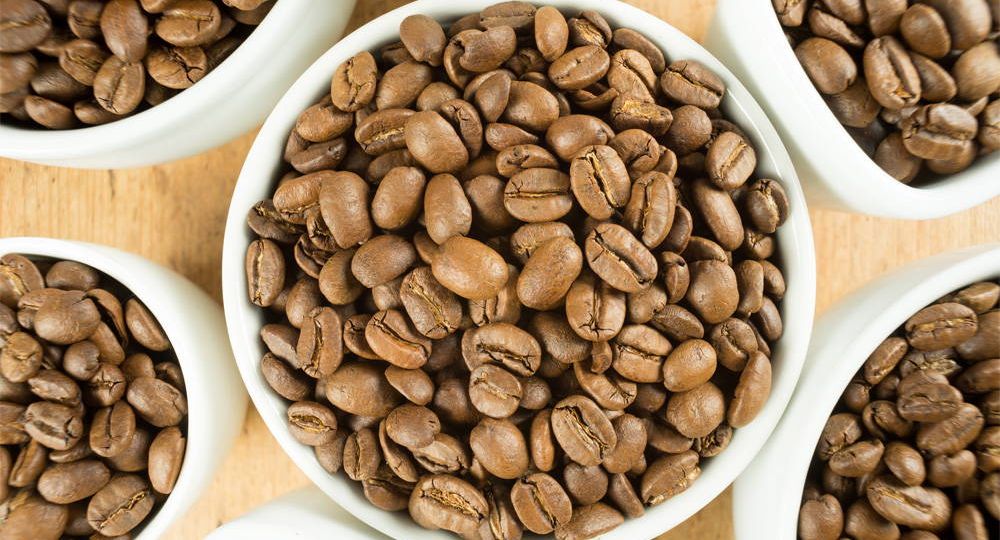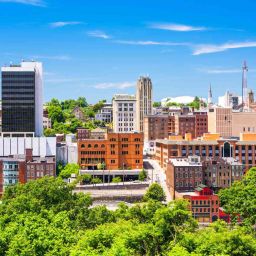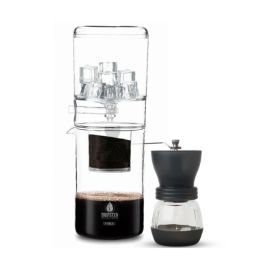
In the quest for the perfect cup of coffee, the selection of beans plays a pivotal role. The United States, a burgeoning hub for coffee enthusiasts, offers a diverse palette of options, each promising a unique taste experience. Choosing the best coffee beans is not merely a matter of personal preference but a journey towards understanding the subtle nuances that distinguish a good cup from a great one. This guide delves into the criteria for selecting top-quality coffee beans, spotlighting the factors that elevate the coffee experience in the USA.
Understanding Coffee Bean Basics
The world of coffee beans is dominated by two primary types: Arabica and Robusta. Arabica beans, cherished for their smooth flavor and aromatic complexity, reign supreme among coffee aficionados. Robusta, on the other hand, offers a bolder, more intense flavor profile, often accompanied by a higher caffeine content.
Beyond these, specialty beans like Peaberry and Kona stand out for their unique characteristics, offering connoisseurs a taste of coffee’s rich diversity.
Factors Influencing Coffee Bean Quality
The journey of a coffee bean from farm to cup is influenced by numerous factors, each playing a crucial role in shaping its final taste profile.
- Origin: The geographical origin of coffee beans is a testament to the diversity of flavors within the coffee spectrum. Factors such as climate, altitude, and soil composition in regions like Colombia, Ethiopia, and Jamaica contribute significantly to the beans’ inherent taste notes.
- Processing Methods: The method used to process coffee beans – washed, natural, or honey – impacts their flavor and body. Washed beans offer clarity and vibrancy, natural processing enhances sweetness and body, and honey processing strikes a balance, offering a unique taste profile.
- Roast Profiles: Roast levels, from light to dark, dictate the coffee’s body, acidity, and flavor notes. Light roasts preserve the bean’s original flavor and acidity, medium roasts offer a balanced flavor, and dark roasts feature a richer, fuller body with reduced acidity.
Top Coffee Beans in the USA
Lifeboost Coffee
Lifeboost Coffee stands out not only for its health benefits but also for its commitment to social and environmental responsibility. With a pH level of 6, Lifeboost’s coffee is less acidic than typical coffee, offering a smoother experience for those with sensitive stomachs.
This feature, combined with its dedication to fair-trade practices and support for environmental conservation efforts, such as donations to RainforestTrust.org, positions Lifeboost as a leading choice for health-conscious and ethically-minded consumers. The company’s emphasis on bird-friendly cultivation practices further underscores its commitment to sustainability.
Hawaiian Kona Extra Fancy Coffee
Hawaiian Kona Extra Fancy Coffee is celebrated for its unique cultivation environment and exceptional quality. Grown on the volcanic slopes of Hawaii’s Big Island, these Arabica beans thrive in a distinct microclimate, resulting in a coffee with a smooth taste profile featuring notes of jasmine, citrus, and caramel.
The “Extra Fancy” designation indicates the highest grade of Kona coffee, reflecting the beans’ large size, uniform color, and superior taste. This premium product, often presented in luxurious packaging, embodies the pinnacle of gourmet coffee, offering a rare and highly sought-after experience.
Jamaica Blue Mountain Peaberry Coffee
Jamaica Blue Mountain Peaberry Coffee is renowned for its distinct flavor and smoothness. The peaberry variant, a single, round bean found in a fraction of coffee cherries, offers a concentrated flavor that is both rich and mild. Grown in the prestigious Blue Mountain region of Jamaica, this coffee is not only sought after for its taste but also for its rarity and stringent certification processes, ensuring its status as one of the most prized coffees in the world.
Brewing and Enjoyment
Optimal Brewing Techniques
The method of brewing plays a crucial role in unveiling the full potential of coffee beans. For light roasts, a pour-over method accentuates their inherent acidity and flavor nuances, making it ideal for single-origin beans. Medium roasts, offering a balance of flavor and body, are well-suited to drip and AeroPress methods, which highlight their complex character.
Dark roasts, with their bold and robust profiles, are best enjoyed through espresso or French press, methods that complement their intensity and richness.
Pairing Coffee with Food
Enhancing the coffee experience can also be achieved through thoughtful food pairings. Light roast coffees, with their subtle and fruity notes, pair beautifully with light pastries and fruit-based desserts. Medium roasts, with their balanced flavor, complement a wide range of foods, from morning bagels to sweet and savory brunch items.
Dark roasts, known for their boldness, are the perfect match for rich desserts like chocolate cake or a luxurious cheese platter, providing a delightful contrast that elevates both the coffee and the culinary experience.
More Top Coffee Beans and Insights
Single Origin vs. Blends
Single origin coffees come from a specific region and are celebrated for their unique flavor profiles, reflecting the distinct characteristics of their terroir. They offer a pure tasting experience, often with nuanced flavors that can be traced back to their origin. However, they can be more expensive and less consistent year over year due to variations in harvest.
Blends, on the other hand, are crafted from beans from multiple locations, aiming to create a balanced and consistent flavor profile. They can offer complexity and versatility, often at a more accessible price point. Choosing between them depends on personal preference: if you value distinct, terroir-driven flavors, single origin is the way to go; if you seek consistency and complexity, consider blends.
Understanding Coffee Acidity and Bitterness
Acidity in coffee is often misunderstood. Rather than referring to the pH level, it describes a bright, tangy, or fruity quality perceived on the palate. High-quality coffee beans, especially those from higher elevations, typically exhibit a pleasant acidity that contributes to the coffee’s overall flavor complexity.
Bitterness, while a natural component of coffee, can be accentuated by factors like over-roasting or improper brewing. It’s essential to balance acidity and bitterness to achieve a harmonious cup.
Ethical and Sustainable Coffee Buying
Fair Trade and Direct Trade certifications are vital for promoting sustainability and ethics in the coffee industry. Fair Trade ensures that farmers receive a minimum price for their beans, along with additional funds for community development.
Direct Trade, while not certified through a third party, involves direct purchasing from farmers at prices that often exceed the Fair Trade minimum, fostering closer relationships between producers and roasters. Both practices aim to improve the quality of life for coffee farmers and the quality of coffee for consumers, highlighting the importance of making informed purchasing decisions.
FAQs Section
- What determines the flavor profile of a coffee bean? The flavor profile is influenced by the bean’s origin, variety, processing method, and roast level.
- How can I ensure I’m buying fresh coffee beans? Look for beans sold in packages with a roast date, and choose those roasted within the past month.
- Why is single origin coffee often more expensive than blends? Single origin coffees are typically more costly due to their limited availability, unique flavor profiles, and often more labor-intensive production processes.
- Can the way I brew my coffee affect its taste? Absolutely, the brewing method can significantly impact the taste of your coffee, affecting extraction levels and highlighting different flavor notes.
Final Thoughts
In conclusion, the journey to find the best coffee beans in the USA is a blend of personal preference, ethical considerations, and an appreciation for the art and science of coffee production.
From understanding the nuances of single origin versus blends to recognizing the importance of ethical and sustainable sourcing practices, coffee lovers are encouraged to explore and enjoy the rich diversity of flavors that high-quality coffee beans offer.
The commitment to sustainability and ethical buying practices not only enhances the coffee experience but also supports a healthier and more equitable global coffee industry.









